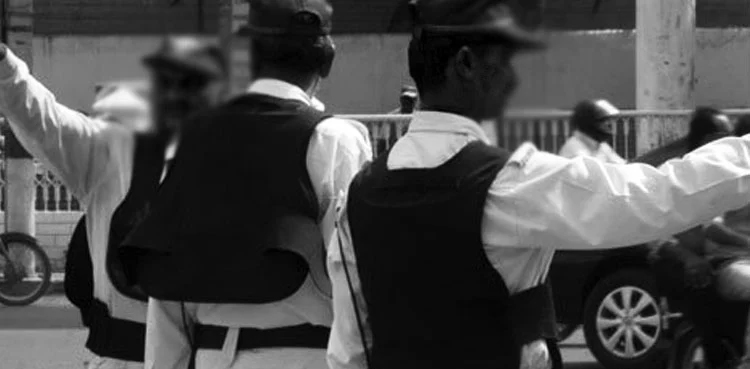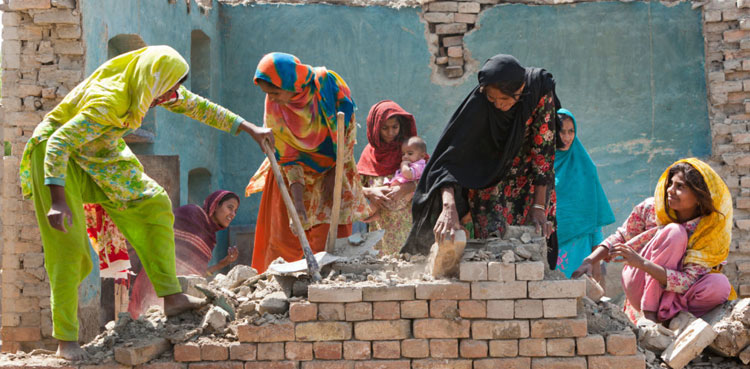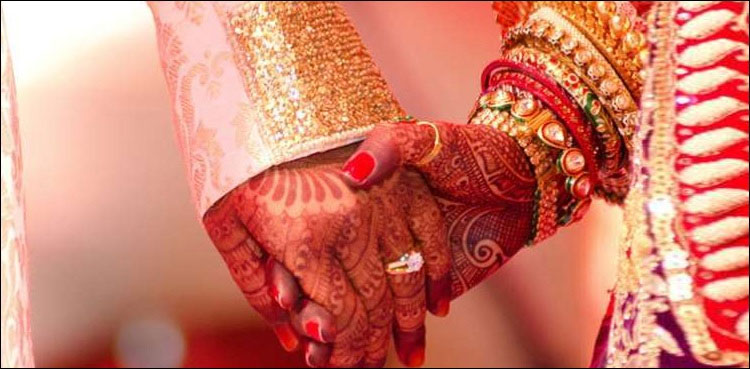Evolving Social Complexion Of Pakistani Life
- By Tahseen Mahmood Aslam -
- Feb 23, 2023

Pakistani nation is widely acknowledged to be very resilient and has the ability to adapt to whatever changes occur in surrounding environment and accepts these alterations accordingly.
The difficulties experienced by Pakistani social matrix are enormous and are continuing but it is certain that the nation will come out of them. The current situation however is that even after seven decades after its existence, the overwhelming majority of Pakistan still lives in rural areas and that suffer from underdevelopment.
However, the urban areas are not faring well either as most of Pakistani cities have large slums to take care of. Though Pakistan has enjoyed fairly good economic growth since the last seven decades yet wealth has been poorly distributed causing tremendous heartburn in the social system.
A middle-class is emerging but a narrow stratum of elite families maintains extremely disproportionate control over the nation’s wealth and almost one-third Pakistanis live in poverty.
Pakistan has a male-dominated social structure in which social development has lagged considerably behind as the womenfolk are provided scant rights and that rather grudgingly. The women have also not benefitted by the economic change as revealed by such critical indicators as sanitation, access to health care and literacy among females.
Increasing population pressure on limited resources, together with this pattern of social and economic inequity has caused increased disquietude within the society in the early 1990s. However with the gradual spread of social media has brought new emphasis on women rights and people now pay more attention to this matter.
Women are now slowly coming in the mainstream and their contribution to socio-economic development is duly recognised.

Pakistan’s social mores have a decisive impact on family or personal interest and status take precedence over public good in Pakistan. Thus traffic laws are often enforced solely according to a person’s political clout rather than due process and admission to school depends more upon connections or wealth than on ability. The result is that Pakistani social life revolves around family and kin. Even among members of the most Westernized elite, family retains its overarching significance.
The family is the basis of social organisation, providing its members with both identity and protection. Rarely does an individual live apart from relatives; even male urban migrants usually live with relatives or friends of kin.
Children live with their parents until marriage, and sons often stay with their parents after marriage, forming a joint family. The household is the primary kinship unit. In its ideal, or extended, form, it includes a married couple, their sons, their sons’ wives and children, and unmarried offspring. Sons establish separate households upon their father’s death. Whether or not an extended household endures depends on the preferences of the individuals involved.
In Pakistan, descent is reckoned patrilineally, so only those related through male ancestors are considered relatives. Group of male kin plays a significant role in social relations. In some areas, however, land fragmentation and generations of out-migration have led to the dispersal of many members of the group among various villages, regions, and cities. Patrilineal kin continue to maintain ties with their natal village and enjoy the legal right of first refusal in any group land sale. Members of a group celebrate the major life events together. Patrilineal kin are expected to contribute food and to help with guests in the ceremonies accompanying birth, marriage, death, and major religious holidays.

Although descent is reckoned patrilineally, women maintain relations with their natal families throughout life. The degree of involvement with maternal kin varies among ethnic groups and among regions of the country. The tie between brother and sister is typically strong and affectionate; a woman looks to her brothers for support in case of divorce or widowhood early in her marriage.
Just as a family’s relations with its associates are considered in evaluating a potential spouse, so in these regions may the mother’s kin be assessed. There is immense regional diversity in Pakistan yet they have diverse cultural traditions and speak different languages. Ethnic, regional, and, above all, family loyalties figure far more prominently for the average individual than do national loyalties. Ethnic mixing within each province further complicates social and political relations.
Marriage is a means of allying two extended families; romantic attachments have little role to play. The husband and wife are primarily representatives of their respective families in a contractual arrangement, which is typically negotiated between two male heads of household. It is fundamentally the parents’ responsibility to arrange marriages for their children, but older siblings may be actively involved if the parents die early or if they have been particularly successful in business or politics. The terms are worked out in detail and are noted, by law, at the local marriage registry.
Marriage is a process of acquiring new relatives or reinforcing the ties one has with others. To participate fully in society, a person must be married and have children, preferably sons, because social ties are defined by giving away daughters in marriage and receiving daughters-in-law. Marriage with one’s father’s brother’s child is preferred, in part because property exchanged at marriage then stays within the patrilineage. The relationship between in-laws extends beyond the couple and well past the marriage event. Families related by marriage exchange gifts on important occasions in each other’s lives. If a marriage is successful, it will be followed by others between the two families. The links thus formed persist and are reinforced through the generations.
The pattern of continued intermarriage coupled with the occasional marriage of nonrelatives creates a convoluted web of interlocking ties of descent and marriage. A wife gains status and power as she bears sons. Sons will bring wives for her to supervise and provide for her in her old age.
Daughters are a liability, to be given away in an expensive marriage with their virginity intact. Therefore, mothers favour their sons. In later life, the relationship between a mother and her son remains intimate, in all likelihood with the mother retaining far more influence over her son than his wife has.

In 1980s the World Bank forecast the advancement of Pakistan to the ranks of middle-income countries but the nation had not quite achieved this transition in the mid-1990s. Many blame this fact on Pakistan’s failure to make significant progress in human development despite consistently high rates of economic growth. Whereas urban violence was traditionally related to blood feuds, it has become more random and has escalated dramatically. Salaries, as compared with bribes, are so inconsequential a privilege of employment that people sometimes plead to be given appointments without pay.
Failure to develop civic-minded citizenship is also evident in public administration and imbalanced government spending.
The bureaucracy, a legacy of the British colonial period, has not modernised sufficiently to incorporate new technologies and innovations despite efforts by the government staff colleges.
